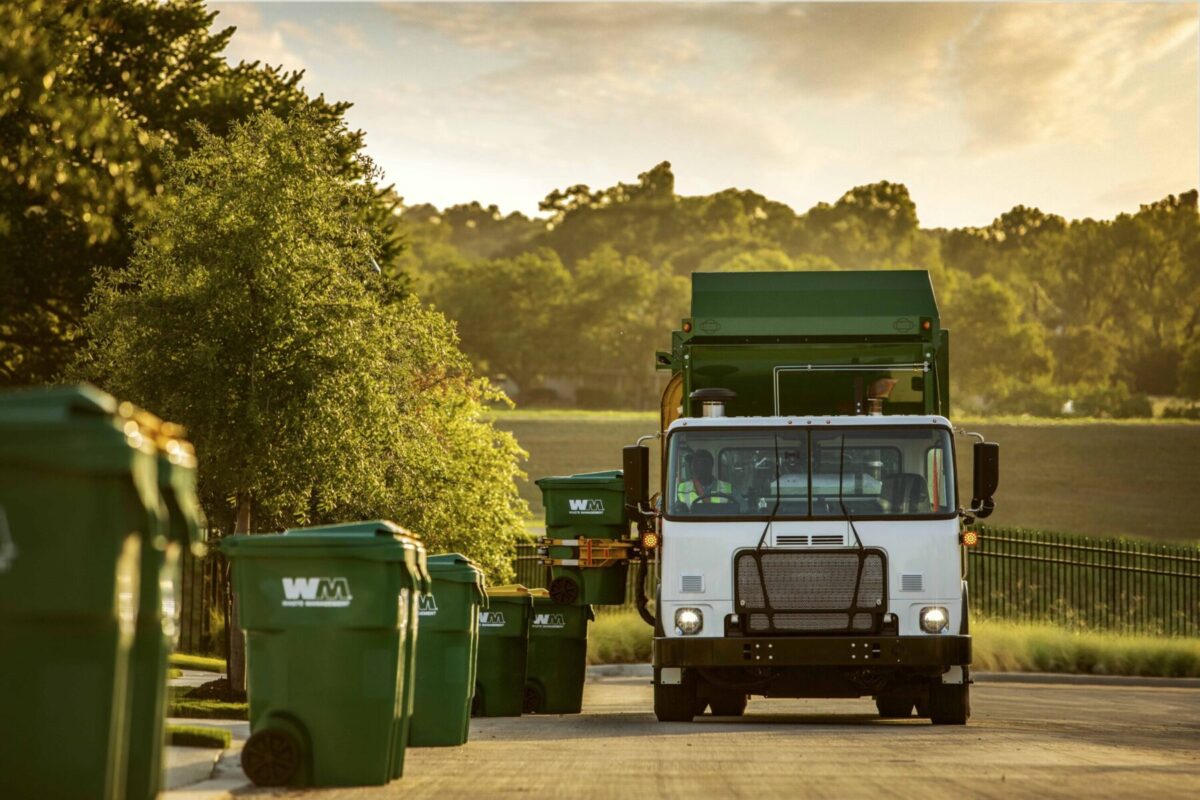Waste management is a critical issue that affects every community, including Lancaster. As populations grow and urbanization expands, the need for effective waste management solutions becomes increasingly important. Lancaster waste management has emerged as a vital component in maintaining environmental sustainability and public health in the region. This article delves into the various aspects of waste management in Lancaster, offering insights into its practices, challenges, and opportunities for improvement.
Lancaster, a vibrant city in England, has made significant strides in improving its waste management systems. The local government and private organizations have collaborated to implement innovative strategies aimed at reducing waste and promoting recycling. These efforts are crucial in addressing environmental concerns and ensuring a cleaner, healthier environment for residents.
This guide will explore the intricacies of Lancaster waste management, providing valuable information for residents, businesses, and stakeholders interested in understanding how the city handles waste. By examining the current practices, challenges, and future prospects, we aim to offer a comprehensive overview of the subject while highlighting actionable steps for improvement.
Read also:Mastering Excel Serp Tracking Boost Your Seo Strategy
Table of Contents
- Introduction to Lancaster Waste Management
- History of Waste Management in Lancaster
- Current Waste Management Practices
- Recycling Efforts in Lancaster
- Challenges Faced by Lancaster Waste Management
- Future Plans and Innovations
- The Role of the Community in Waste Management
- Impact on Local Businesses
- Environmental Benefits of Effective Waste Management
- Key Statistics and Data
- Conclusion and Call to Action
Introduction to Lancaster Waste Management
Waste management in Lancaster is a multifaceted process that involves the collection, transportation, processing, and disposal of waste materials. The city's approach to waste management focuses on minimizing environmental impact while promoting sustainability. By adopting modern techniques and technologies, Lancaster aims to reduce landfill usage and increase recycling rates.
Importance of Waste Management
Effective waste management is essential for maintaining public health and preserving natural resources. Poor waste management practices can lead to pollution, contamination of water sources, and harm to wildlife. In Lancaster, the emphasis is on creating a balanced ecosystem where waste is managed responsibly, benefiting both the environment and the community.
History of Waste Management in Lancaster
The history of waste management in Lancaster dates back to the industrial revolution when the city's rapid growth necessitated organized waste disposal systems. Over the years, the city has evolved its waste management strategies to adapt to changing environmental regulations and technological advancements.
Evolution of Practices
- Early waste disposal methods relied heavily on landfill sites.
- Introduction of recycling programs in the 1990s.
- Recent focus on sustainable waste management solutions.
Current Waste Management Practices
Today, Lancaster employs a variety of waste management practices to address the growing demands of its population. These practices include curbside collection, waste sorting facilities, and specialized disposal methods for hazardous materials.
Curbside Collection
Curbside collection is a convenient service provided to residents for the disposal of household waste. This system ensures that waste is collected regularly and transported to designated processing facilities.
Recycling Efforts in Lancaster
Recycling is a cornerstone of Lancaster's waste management strategy. The city has implemented numerous initiatives to encourage residents and businesses to recycle more effectively. Recycling programs focus on paper, plastic, glass, and metal, with ongoing efforts to expand the range of materials accepted.
Read also:Unveiling The Enigma The Addams Family Butlers Role And Legacy
Recycling Facilities
- State-of-the-art recycling centers equipped with advanced sorting technology.
- Community recycling events to educate and engage the public.
- Partnerships with local businesses to promote industrial recycling.
Challenges Faced by Lancaster Waste Management
Despite its successes, Lancaster waste management faces several challenges that hinder its progress toward sustainability. These challenges include limited funding, public awareness, and the need for improved infrastructure.
Financial Constraints
One of the primary challenges is securing sufficient funding to support waste management initiatives. The city relies on a combination of government grants and private investments to finance its programs, but budget constraints often limit the scope of its operations.
Future Plans and Innovations
Lancaster is committed to advancing its waste management practices through innovation and collaboration. Future plans include the implementation of smart waste management systems, increased investment in renewable energy, and the development of educational programs to enhance public awareness.
Smart Waste Management
Smart waste management systems utilize technology such as sensors and data analytics to optimize waste collection and processing. These systems promise to improve efficiency and reduce costs, making them an attractive option for Lancaster's waste management strategy.
The Role of the Community in Waste Management
The success of Lancaster's waste management efforts depends largely on the active participation of its residents. Community involvement is crucial in promoting recycling, reducing waste, and fostering a culture of sustainability.
Engaging Residents
- Organizing community clean-up events.
- Providing educational resources on waste reduction.
- Encouraging households to adopt zero-waste lifestyles.
Impact on Local Businesses
Local businesses in Lancaster also play a significant role in waste management. By adopting sustainable practices, businesses can reduce their environmental footprint and contribute to the city's overall waste management goals.
Sustainable Business Practices
- Implementing recycling programs in workplaces.
- Reducing single-use plastics and packaging materials.
- Partnering with waste management companies to improve disposal processes.
Environmental Benefits of Effective Waste Management
Effective waste management offers numerous environmental benefits, including reduced pollution, conservation of natural resources, and decreased greenhouse gas emissions. Lancaster's commitment to sustainable waste management practices aligns with global efforts to combat climate change and protect ecosystems.
Conservation of Resources
By recycling materials and minimizing waste, Lancaster contributes to the conservation of valuable resources such as water, energy, and raw materials. These efforts help ensure that future generations inherit a planet capable of supporting life.
Key Statistics and Data
Data and statistics provide valuable insights into the effectiveness of Lancaster's waste management practices. According to recent reports:
- Recycling rates in Lancaster have increased by 20% over the past five years.
- Approximately 70% of household waste is now diverted from landfills.
- Local recycling facilities process over 10,000 tons of materials annually.
Conclusion and Call to Action
Lancaster waste management represents a successful model for sustainable waste management practices. Through innovative strategies, community engagement, and collaboration with stakeholders, the city continues to make strides toward a cleaner, healthier environment. However, ongoing efforts are necessary to address existing challenges and seize future opportunities.
We encourage residents, businesses, and policymakers to take an active role in supporting Lancaster's waste management initiatives. By working together, we can create a sustainable future for generations to come. Leave a comment below to share your thoughts on waste management in Lancaster or explore related articles for further information.

